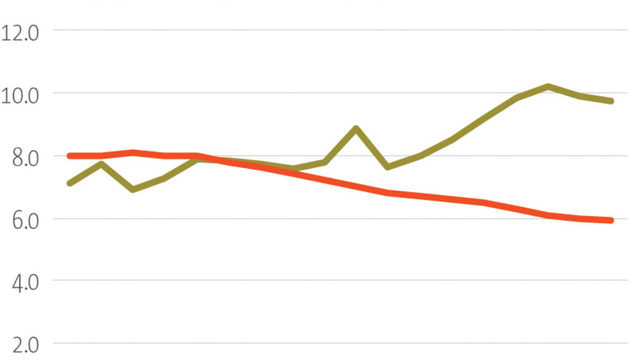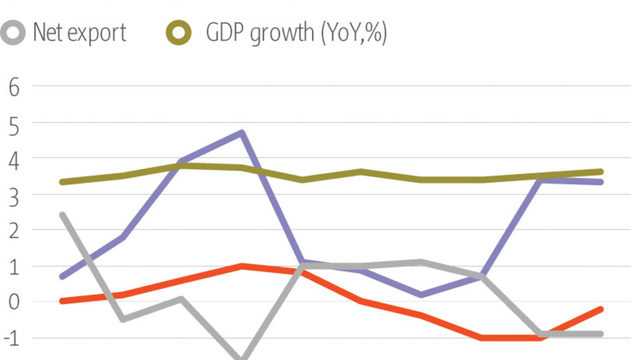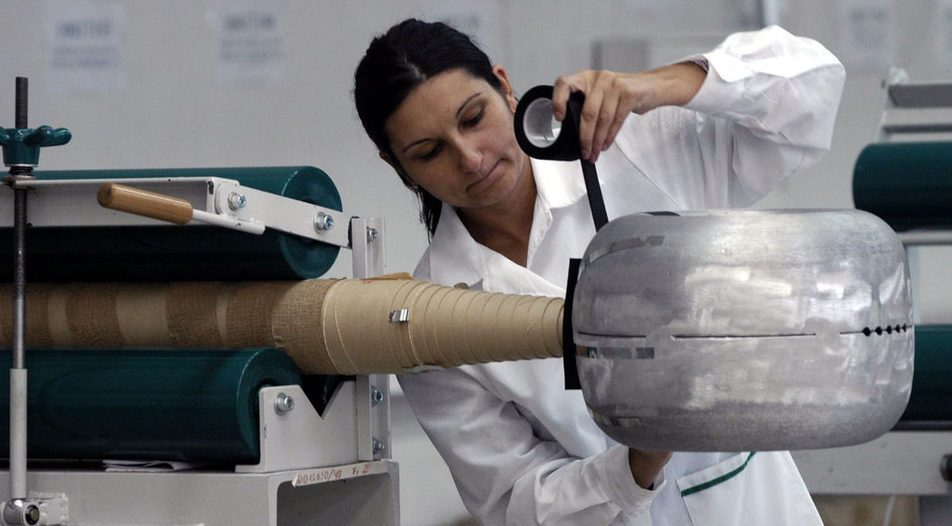The Bulgarian economy continued to grow at a steady pace in the second quarter of 2017, with gross domestic product up 3.6% on the year during the April - June period, according to data of the National Statistical Institute (NSI). Rising wages and a fall in unemployment to pre-crisis levels were the main drivers of a rise in domestic consumption. Exports have also grown considerably since the start of the year both to countries inside and outside the European Union but it is still lagging behind the surge in imports resulting from increased domestic demand. Investments have yet to awaken from their 2016 slumber, having decreased on an annual basis despite forecasts predicting the opposite for 2017.
Consumption leading the way
Domestic demand rose in the the second quarter, sustaining its upward trend from the previous quarter. With wages having risen by close to 10%, unemployment fallen to 6.3% and expectations improved, household consumption increased by 4.2%, year on year, whereas public consumption grew by 2.3%. According to forecasts, the trend will continue throughout 2018 as well.
Several factors support this optimism. On the one hand, the labor market is improving. The number of employed rose by 138,000 compared to the same period 2016, people without jobs are decreasing, and remuneration is increasing.
Some experts express concerns that this rate of wage growth cannot be maintained, as it is much bigger than the rise in labor productivity. Productivity rose by 3.2% in the second quarter - higher than the first (2.6%), but lower than the last months of 2016 (4.2%). Though positive, the change continues to lag behind the increase in salaries. In effect, the problem is that labor costs for employers are going up, whereas production is not increasing as much and every unit produced costs more. According to most analysts though the deepening shortage of qualified personnel is the main driver of this wage growth, with companies luring the best employees the labor market can offer through higher wages.


On the other hand, historically low interest rates on loans make the purchase of durable assets such as real estate, cars, TV sets particularly affordable.
Exports rising
The growing purchasing power of households can be seen in trade figures. Higher domestic demand resulted in a 7% increase in imports during April - June, year on year. Exports also rose, albeit more slowly than imports, by 6.1%, which led to a negative net contribution to economic growth.
There are several reasons for the rise in exports. Economic optimism in Europe is increasing foreign demand for Bulgarian goods. Additionally, international prices of copper and oil have gone up on an annual basis since the beginning of 2017, boosting the value of sales.
Analysts expect trade growth will continue, though there are risks. Brexit negotiations, elections in Germany and political instability in Italy can potentially dent demand for Bulgarian goods abroad. Also, a stronger euro relative to the dollar can slow Bulgaria's export growth through the lev/euro peg.
Still looking for investments
Investments buck the rising trend among GDP components, having decreased by close to 1% in the second quarter relative to the 2016 level, according to statistical data. The main reason is the low absorption of EU funds for the 2014-2020 EU programming period. Analysts also point out that Bulgaria's economic growth is currently generated in sectors which do not require significant capital investments.
On the other hand, data shows a rise of 2.3% in investments on a quarterly basis in April-June, which could be due to the particularly low comparison basis of January - March. Whatever real positive development with regard to capital formation there was, it must have come from the private sector, not the public one. Capital expenditure as a component of the government budget has barely been used since the start of the year.
Inflation is stable
Following a three-year period of deflation, prices have picked up since the beginning of the year, with most recent data from August showing inflation of 1.4%, year on year, according to the NSI. The rise is led by higher food and natural gas prices, whereas the effect from higher oil prices, which were the main driver of inflation during the first half of 2017, has lessened.
Natural gas prices set by the Energy and Water Regulatory Commission quarterly under a proposal of public gas supplier Bulgargaz rose by 30% from April 1. With the price of natural gas being the main determinant of heating energy prices, inflation there increased as well.
The Bulgarian economy continued to grow at a steady pace in the second quarter of 2017, with gross domestic product up 3.6% on the year during the April - June period, according to data of the National Statistical Institute (NSI). Rising wages and a fall in unemployment to pre-crisis levels were the main drivers of a rise in domestic consumption. Exports have also grown considerably since the start of the year both to countries inside and outside the European Union but it is still lagging behind the surge in imports resulting from increased domestic demand. Investments have yet to awaken from their 2016 slumber, having decreased on an annual basis despite forecasts predicting the opposite for 2017.












